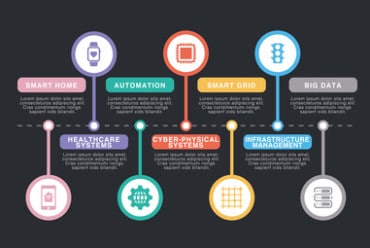
As organizations attempt to create new digital services that drive additional revenues, many of them are realizing existing approaches to data management no longer meet their requirements.
SAP today launched a series of initiatives intended to make it simpler for organizations to employ a more holistic approach to managing data as a true business asset.
Announced simultaneously at the SAP TechEd event and Strata Data Conference, the latest SAP offerings span everything from the general availability of SAP Data Intelligence Service on the SAP Cloud that provides tools for managing data and machine learning algorithms used to create artificial intelligence (AI) models to a conversational user interface that has been added to the SAP Analytics service.
See also: Achieving AI and ML Nirvana
At the same time, SAP also announced it is extending an existing alliance with Microsoft to ensure interoperability between their respective blockchain platforms.
As organizations attempt to monetize data to create new digital services that drive additional revenues, many of them are starting to realize existing approaches to data management no longer meet their requirements, says Juergen Mueller, CTO and executive board member at SAP SE. Too much of the data organizations collect today is housed in isolated silos. SAP is now providing a semantic layer across all that data to make it both more accessible and easier to manage, says Mueller.
While organizations have always valued data to one degree or another, Mueller notes that as the cost of processing and strong data in the age of the cloud has fallen it’s become much more feasible for organizations to collect massive amounts of data that they can then analyze using machine learning algorithms created using open source tools such as TensorFlow.
“There’s a groundswell to monetize data because the volumes are now there,” says Mueller.
That core capability has resulted in many more organizations appointing chief data officers that are specifically tasked with launching cross-functional initiatives that leverage the internal data assets to their maximum extent, notes Mueller.
While SAP is not the only IT vendor trying to seize that opportunity, the long-time provider of widely employed ERP applications is clearly trying to extend its base into business processes automation using advanced analytics fueled by machine learning algorithms.
For example, SAP today extended an SAP Intelligent Business Processes Management (SAP Intelligent BPM) service to include SAP Cloud Platform Workflow, SAP Cloud Platform Business Rules and SAP Cloud Platform Process Visibility to make it simpler to craft digital workflows across multiple business applications. SAP is also making available a Document Information Extraction package that employs machine learning algorithms to extract relevant business data from unstructured documents.
SAP is also embedding machine learning algorithms within SAP S/4HANA Cloud ERP applications. An Intelligent Approval Workflow in Procurement employs machine learning to classify important and unimportant purchase requisition approvals by weighting them by confidence factor to surface which ones warrant immediate attention. SAP has also extended a set of best practices it has defined for robotic process automation (RPA) to include tighter integration with SAP S/4HANA Cloud.
SAP is making it clear machine learning algorithms embedded with the core HANA database and its application portfolio will play a major role in transforming how processes digital processes are created and managed. The challenge now is making sure that one highest quality data available is exposed to those algorithms to ensure the best possible outcome.






























